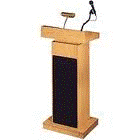
Discipline-Based Education Research Group Speaker Series
Date of this Version
3-10-2016
Document Type
Presentation
Citation
Abstract for DBER Group Discussion on 2016-03-10
Abstract
Studies of interdisciplinary research teams indicate that team members struggle to achieve knowledge integration across disciplines. Knowledge integration across disciplines is at the heart of addressing important research challenges, such as impacts of global change, trade-offs between water, food, and energy production, and the need for sustainable cities. The EMBeRS Project is testing a new model for integrating knowledge across disciplines based on cognitive science theories of model-based reasoning. The project will create educational materials to train students to overcome the barriers to integrating knowledge across disciplines.
Issues arise due to the inability of team members to work collaboratively in a research team with others who may hold very different perspectives. Collaboration is a critical aspect of preparing today's students to meet future workforce demands. Providing opportunities for students to explicitly develop collaboration skills is an important attribute of EMBeRS and the UNL Environmental Studies program. To address the challenge of developing collaboration skills, the Environmental Studies program used a backward curriculum design, multiple modalities of experiential learning, and a reflective action research approach to develop collaboration and teamwork skills in undergraduate students. The ES program partnered with Target Training International Ltd. (TTI), to gain insights into the use of their instruments as boundary objects to help student’s understand self and create interdisciplinary teams. Through the use of an instrument, the TriMetrix®, the UNL-ES program is taking a page from the business world and partnering with it to help students understand themselves, and adapt their behaviors to more effectively work in a team. These assessments played a positive role in the dynamics of each group, some more than others. The analyses of these data have informed us about how to improve the use of the assessment output in class.
(Abstract only)
Included in
Curriculum and Instruction Commons, Educational Methods Commons, Higher Education Commons, Science and Mathematics Education Commons


Comments
Copyright © 2016 Dr. David Gosselin